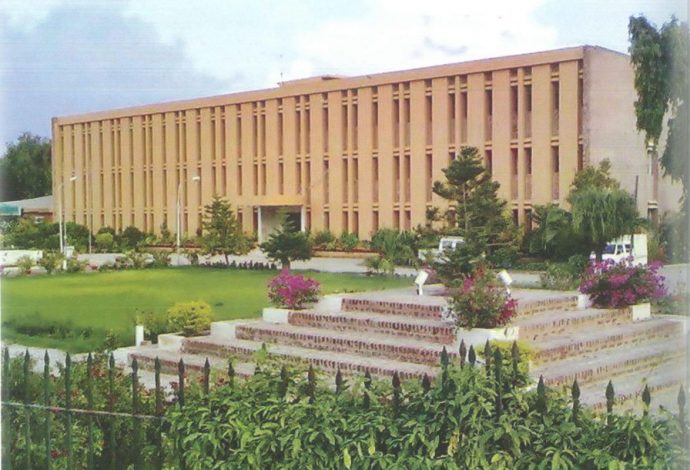
Agreement between Sindh Agriculture University and Hupo for establishment of carbon-neutral villages
Sindh Agricultural University Tandojam and the Canadian organization Hupo have reached an agreement for the establishment of carbon-neutral villages. The framework for the survey and identification of regions and the initiation of a rural training program were also discussed. According to details, Sindh Agricultural University Tandojam and Canada’s Hupo organization have signed an agreement for collaboration on research and development of carbon-neutral designs for villages. The agreement was signed by Dr. Manzoor Ali Abro, Dean of the Crop Protection Faculty, and Dr. Nasir Qureshi, President of Hupo.
Vice-Chancellor Dr. Fatah Marri of Sindh Agricultural University was also present on this occasion. The purpose of this collaboration is to explore solutions to reduce carbon emissions from villages, including the implementation of the international standard Village Carbon Footprint Calculator.
This agreement includes raising awareness about carbon reduction, as well as the initiation of training programs for students, faculty, and farmers. Earlier, a two-day training workshop on the subject of carbon-neutral villages was conducted at the Crop Protection Faculty of Sindh Agricultural University, in which students from various disciplines participated. Speaking at the closing ceremony of the workshop, Vice-Chancellor Professor Dr. Fatah Marri said that climate change poses a significant threat to weather patterns, the agricultural sector in the province of Sindh, and the economic conditions of people. Therefore, guidance needs to be provided to people for carbon reduction.
Hupo President Nasir Qureshi from Canada delivered a lecture on the Carbon Neutral Agenda and Farm Carbon Toll Cut. He stated that the goal of the Carbon Neutral Agenda is to balance the amount of carbon dioxide emitted into the atmosphere by achieving net zero carbon objectives. Dr. Renuka Thakore, the founder of the Global Sustainable Futures Network in the United Kingdom, provided a brief introduction to carbon budgets, carbon mobilization, carbon literacy, and the capability to cope with carbon.

Content writer, educationist, teacher, researcher, social media manager, and a SEO manager from lahore. She has been working as a freelance academic and non-academic writer for more than 10 years now. She has a passion to learn new things and has a knack for writing and she combines both things to produce write ups she pours her heart out in.

